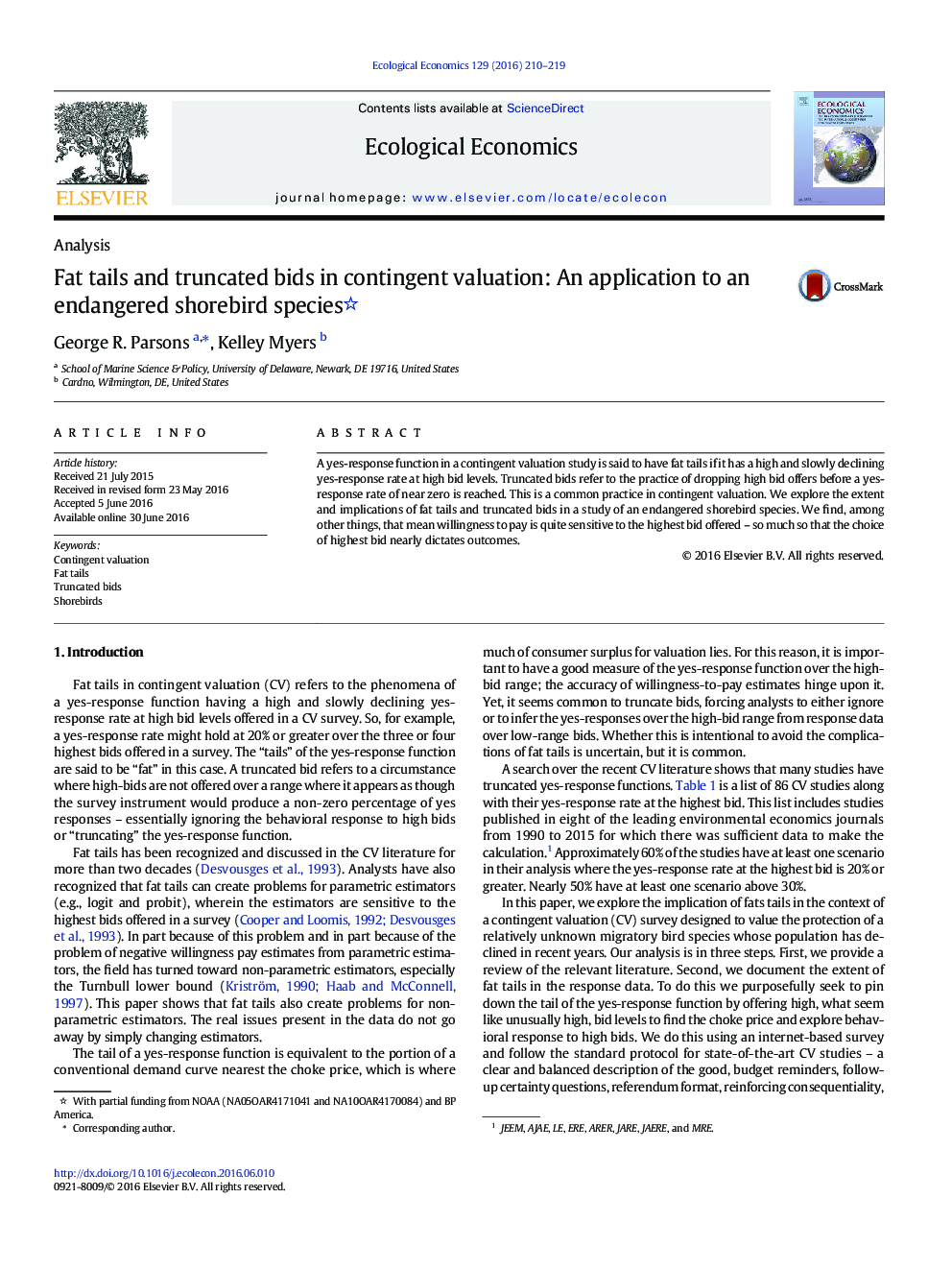| Article ID | Journal | Published Year | Pages | File Type |
|---|---|---|---|---|
| 5049004 | Ecological Economics | 2016 | 10 Pages |
Abstract
A yes-response function in a contingent valuation study is said to have fat tails if it has a high and slowly declining yes-response rate at high bid levels. Truncated bids refer to the practice of dropping high bid offers before a yes-response rate of near zero is reached. This is a common practice in contingent valuation. We explore the extent and implications of fat tails and truncated bids in a study of an endangered shorebird species. We find, among other things, that mean willingness to pay is quite sensitive to the highest bid offered - so much so that the choice of highest bid nearly dictates outcomes.
Related Topics
Life Sciences
Agricultural and Biological Sciences
Ecology, Evolution, Behavior and Systematics
Authors
George R. Parsons, Kelley Myers,
